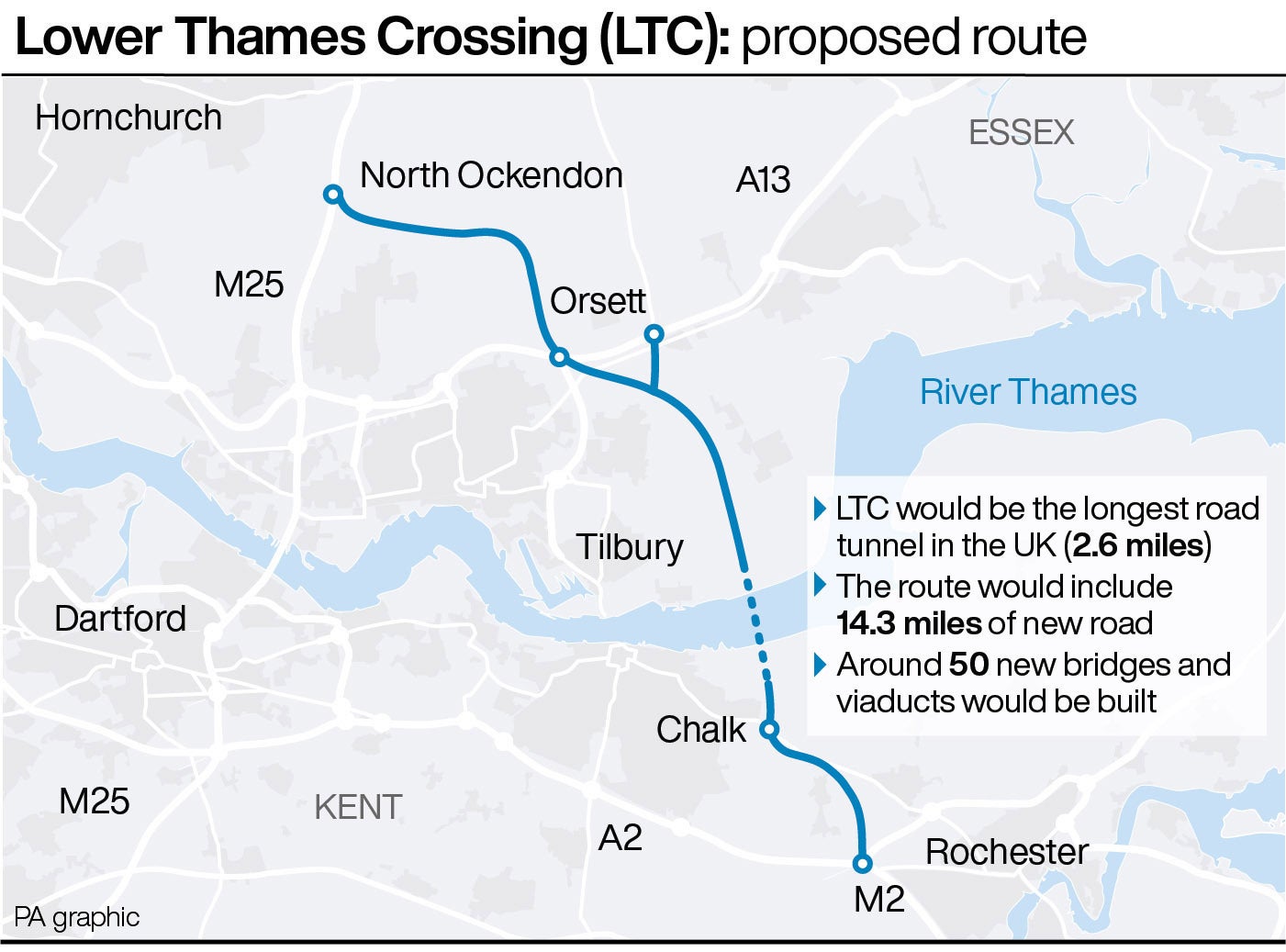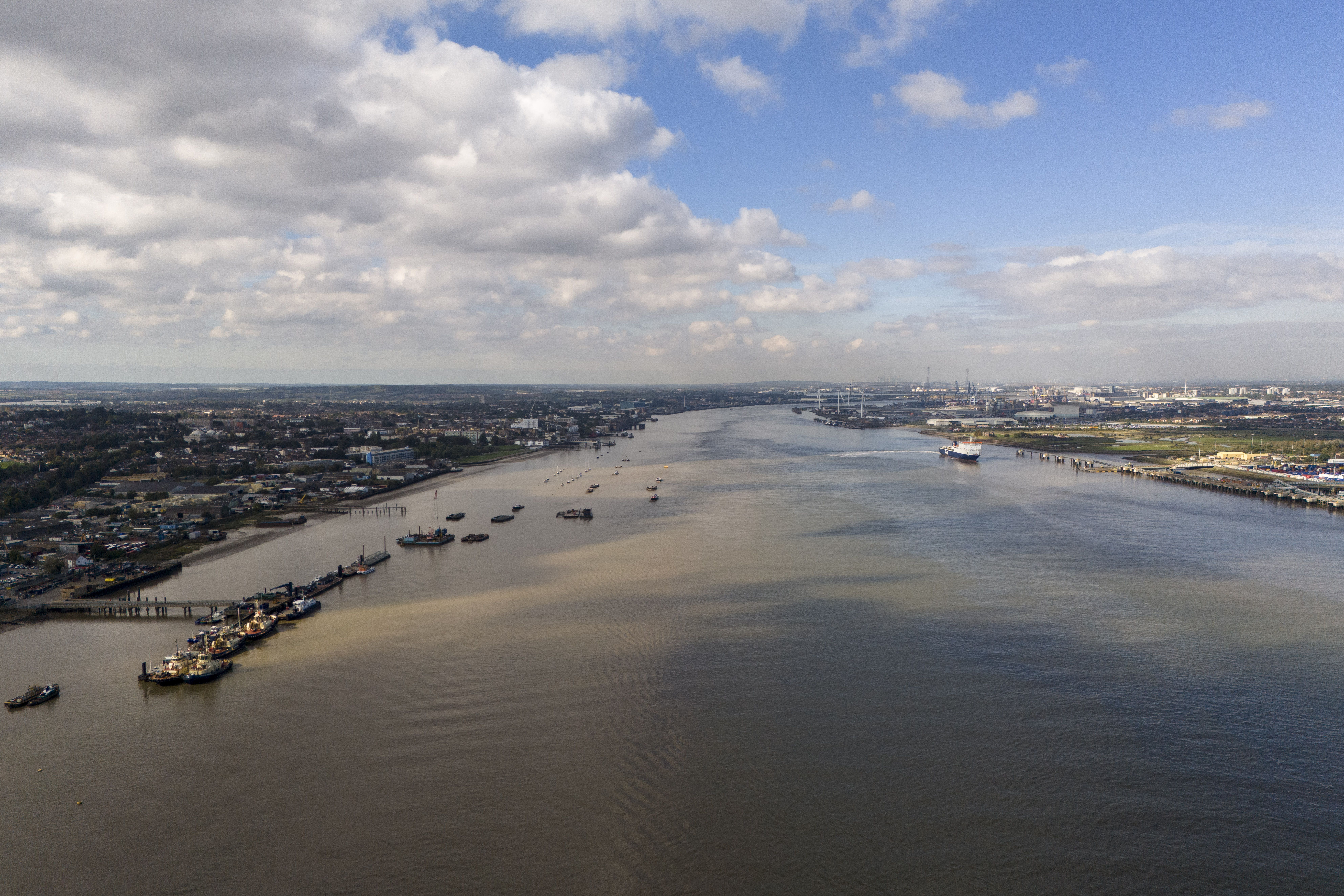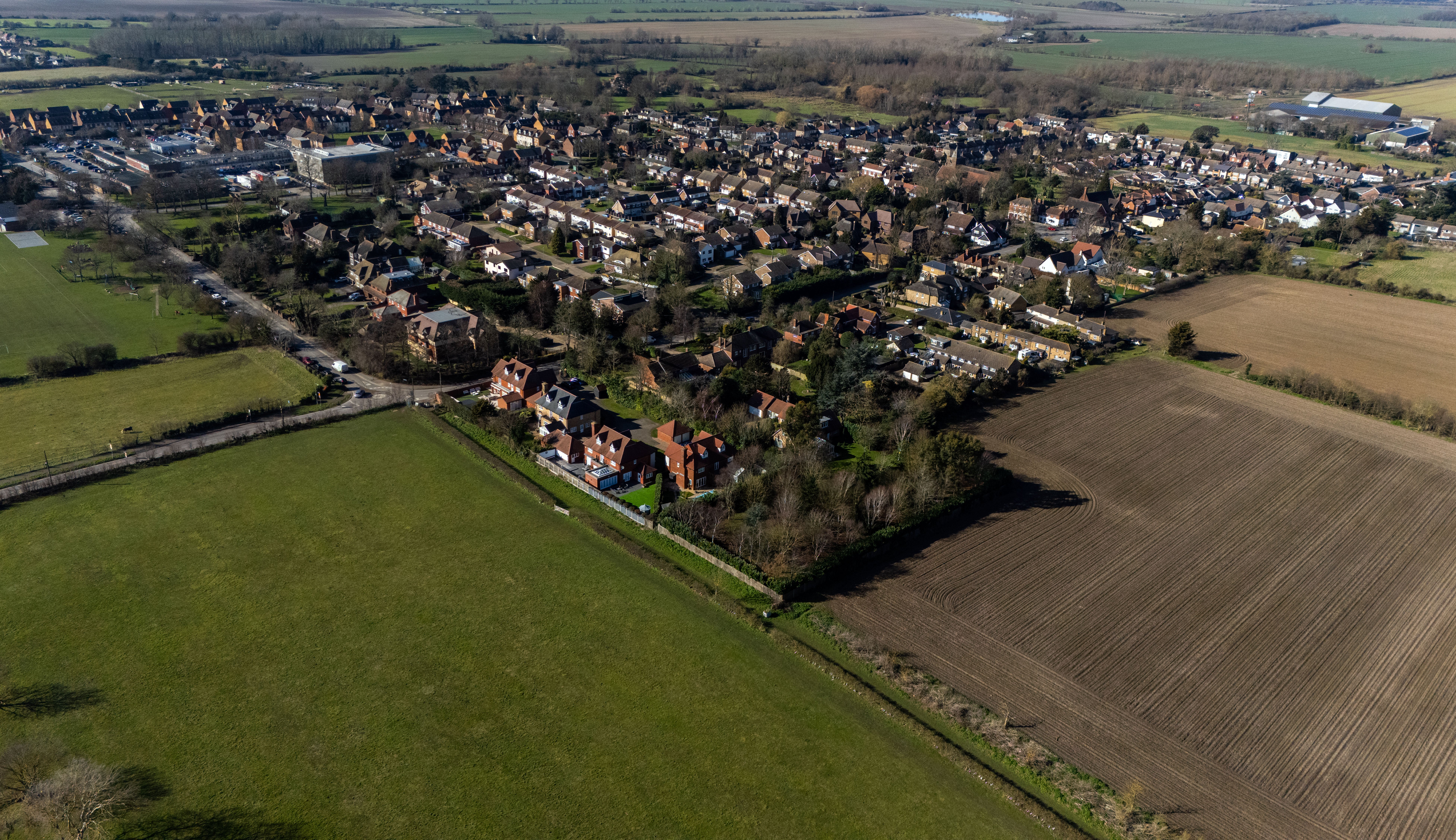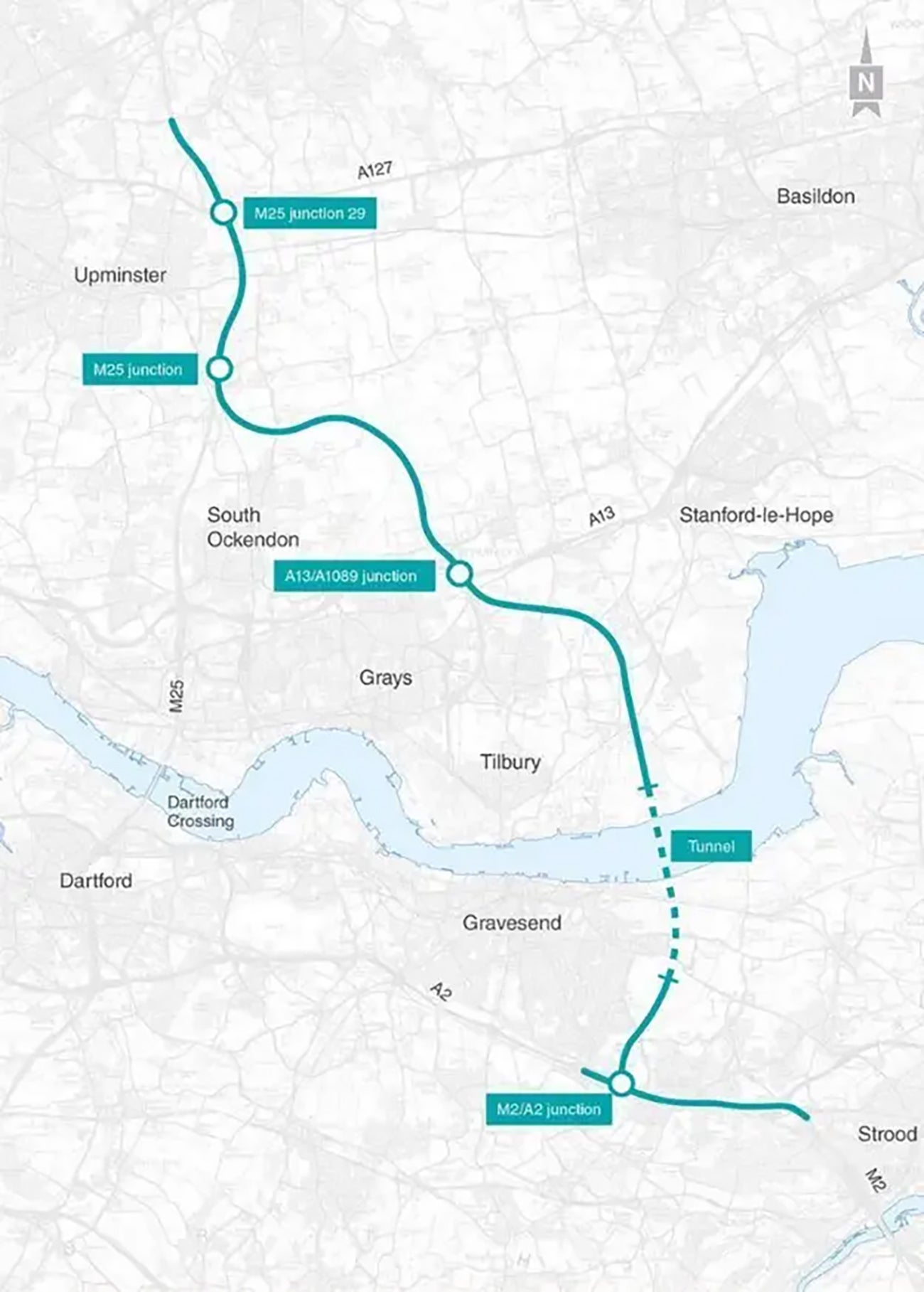UK’s largest-ever road tunnel set to be built after £8.3bn plan approved
Lower Thames Crossing will include 2.6-mile tunnels under River Thames linking Kent and Essex
The UK’s largest-ever road tunnel is set to be built after an £8.3billion plan was given the go-ahead by the government.
Transport Secretary Heidi Alexander has approved a development consent order application by National Highways for the 14.5-mile Lower Thames Crossing between Kent and Essex, the Planning Inspectorate said on Tuesday.
In what has been described by National Highways as “the most significant road project in a generation”, the crossing will include two 2.6-mile tunnels under the Thames, which would be the UK’s longest road tunnels.
Work on the project has been ongoing since 2009, and more than £800 million of taxpayers’ money has been spent on planning.
The new motorway-style road connecting the A2 and M2 in Kent to the A13 and M25 in Essex is aimed at reducing congestion on the Dartford Crossing by nearly doubling road capacity across the Thames east of London.

National Highways said the government is “currently exploring private finance options for the project”. The most likely cost stated in the planning application is £8.3bn, but it could be up to £10bn depending on the government’s chosen financial model, according to National Highways.
Construction could start next year, with the new road expected to open in the early 2030s.
A government source said: “The Lower Thames Crossing will be a key strategic route for driver freight, and logistics – improving connectivity between the South and the Midlands, linking up our ports, and unlocking regional economic growth.
“This demonstrates this Government’s commitment to delivering the vital infrastructure the country needs to succeed, and to be on the side of the builders, not the blockers.”
Matt Palmer, National Highways executive director for the Lower Thames Crossing, said: “It will unlock growth with quicker, safer and more reliable journeys, and redraw the blueprint for building major projects in a net zero future by scaling up the use low-carbon construction, and leaving a legacy of green spaces, green skills.

“Our plans have been shaped by the local community and refined by robust and rigorous examination from independent experts.”
Mr Palmer said National Highways is committed to “working with our neighbours” to build the crossing in a way that offers them “opportunities to work and learn new skills while reducing impacts”.
He added: “We are shovel-ready and have our delivery partners on board, and today’s decision allows us to work with government on funding and start the detailed planning that will let us start construction as soon as possible.”
David Wells, chief executive of industry body Logistics UK, said the announcement is “excellent news” as businesses across the country are “currently hamstrung by delays crossing the Thames”.
He added: “Industry is united in its backing for this vital trade route.”

Jim Dickson, Labour MP for Dartford, said his constituency has suffered from “endless gridlock” because previous governments have “dodged” making a decision on the Lower Thames Crossing.
He added: “This decision will unlock economic growth across the country and finally deliver a solution to the traffic chaos faced by my constituents on a daily basis.”
Thurrock Council in Essex has consistently opposed the project, citing negative economic, social and environmental impacts, but the leader of Kent’s Dartford Borough Council is in favour of the scheme.
Shadow transport secretary Gareth Bacon said the decision “is to be welcomed” but warned that the government must “follow through” on pledges to speed up infrastructure delivery.
Steve Gooding, director of motoring research charity the RAC Foundation, welcomed the announcement, as the “all too frequent queues” at the Dartford Crossing mean there is a need for “a resilient solution”.

Who will finance the project is “potentially an even trickier question”, he added.
Local campaigners Thames Crossing Action Group claimed construction would cause “eight years of disruption and gridlock on local roads”, while predicting that the new road would “increase traffic, pollution, carbon and noise”.
Chris Todd, director of campaign group Transport Action Network, said: “This is absolute madness. It’s a desperate decision to distract from the likely bad news in the Chancellor’s spring statement tomorrow. Rather than boosting growth, this will clog up roads in the South East and slow the economy down even more.”
Downing Street defended the announcement amid questions about funding for the north of England. It was put to Number 10 that MPs in the North were frustrated by the level of investment going to southern areas.
The prime minister’s official spokesman said: “We’re absolutely taking an approach to invest across the country, in every region. We have since the election given the go-ahead for projects across the country. Look at where a lot of our energy investments are happening – across the North, in Scotland, and will unlock thousands of jobs.”
He cited carbon capture and storage investments in the North West and Teesside as examples.
Asked how much of the money for the Lower Thames Crossing would come from taxpayers, the spokesman said: “On the funding, that work will obviously continue in terms of the financing of projects. We’ll be looking at all funding options including private finance, and any final decisions on that will be taken in due course.”
Join our commenting forum
Join thought-provoking conversations, follow other Independent readers and see their replies
Comments
Bookmark popover
Removed from bookmarks